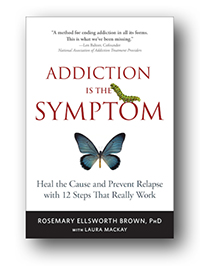Some revealing questions to ask yourself
So many of the things that ail us, that compromise our lives and relationships, are symptoms of emotional dependency and the resulting control issues. These issues run so deep, they are often unrecognized and unquestioned. And we accept the way we feel and think and behave and live because of them as “normal.”
So how does this stuff show up? Can The Brown Method make a difference in your life? Here are some questions to ask yourself:
- Is there anything that you want to permanently stop doing, but can’t? (This is the very definition of addiction.)
- Anything you are preoccupied with despite adverse consequences, even if only to your peace of mind?
- Are your relationships full of conflict?
- Do you keep having the same relationship over and over, with different people?
- Do you seek the approval of others?
- Do you need everyone to like you?
- Do you say yes when you want to say no, or vice versa?
- Do you want to forgive someone, but can’t?
- Do you try to control other people? Get them to change?
- Do you give advice that’s not asked for?
- Do you lie?
- Do you feel held back from meeting your potential?
- Do you feel as if you don’t know who you really are?
- Do you have no idea what you really want?
For people with step/program experience:
- Have you worked through the traditional Twelve Steps but still feel kind of crazy and unhappy?
- Are you abstinent from you drug of choice but holding on by your fingernails?
- Did you try doing the traditional Twelve Steps but quit or fall apart at Step Four?
- Are you going to more than one step group, because new problems keep cropping up?
- Did you give up your drug of choice but replace it with something else that you tell yourself is less bad?
Let’s Be Honest . . .
How many did you answer yes to? If you keep these questions in mind as you go about your day, you might find yourself adding to the list. The yes/no test is quite revealing, in my experience. Try it for a few days or a week. Paying attention to any lies, including the littlest ones, can be surprising too.
All of these and more are indicators of the emotional dependency that underlies all addictive behavior. As Dr. Brown explains in Addiction Is the Symptom, that dependency is conditioned during childhood, and few of us escape it entirely. It’s a deep, largely unconscious thing that’s running your brain.
How does The Brown Method step therapy address all this? By bringing to consciousness this conditioning and putting you in the driver’s seat where you belong. Suddenly, you have choices you didn’t have before about how you behave. How you think and feel about a host of things changes, and so your response to life changes.
Reading the book will help you understand, for sure, and even make some significant changes. But it’s doing the work of the Brown Method that enables you to really get it.
That’s when you can start answering a lot of the questions you answered yes to with a resounding no.
See the glossary: Addiction, Addictive behavior, Control, Emotional dependency





